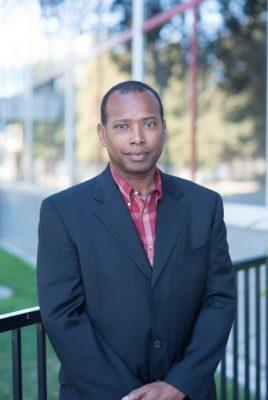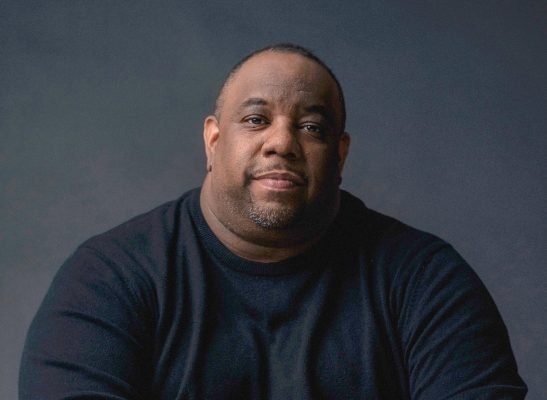The tech evolution brought on by the internet of things is continuing to usher in new generations of smart, connected devices. From microprocessors to quantum computing applications, IoT technology is being integrated across consumer and industrial products. IoT applications haven’t been around very long. When the term was first coined during the Great Recession in 2008, it was oftentimes equated with small closed networks being created to revolutionize wireless communications. Now, the technology has expanded exponentially.
According to market research firm Fortune Business Insights, the global IoT market is projected to grow from $381 billion in 2021 to nearly $1.9 billion by 2028. Chip design firm Arm Holdings predicted that one trillion IoT devices would be built around the world between 2017 and 2035 – increasing global gross domestic product by $5 trillion a year until 2035.
As the internet of things becomes woven into the fabric of everyday life, here are a few founders who are cementing their place in the future of the IoT.
Turnsignl Cofounders: Jazz Hampton, Andre Creighton, Mychal Frelix
Funding: $1.5 million

Minnesota-based Turnsignl is looking to become a public service mainstay. The app utilizes cloud computing services to connect users in real-time with vetted attorneys when they are stopped by police. With the press of a button, the app immediately initiates a video recording that serves as a reverse body camera.
The solution that we’ve built wouldn’t have been possible five to 10 years ago, Jazz Hampton told The Plug. The fact that nearly everyone has a smartphone now, that technology, along with cloud solutions is what gives us the opportunity to continue to innovate. We can now use this and connect you to an attorney that can help you at that moment, right away. Prior to the company’s beta launch in May of this year, Hampton quit his job as an attorney to dedicate his time to getting the company off the ground.
Growing up in Minnesota, Hampton was not exempt from being pulled over by police himself and seeing how easy it was for routine traffic stops to turn deadly. In the past few years, Minnesota has been at the epicenter of community activists and civil rights leaders calling for an end to police brutality and racial justice. After attending several marches, Hampton and his business partners felt compelled to take action. It almost felt like we had tools in the toolbox, but we weren’t using them appropriately so we asked ourselves, ‘what can we do to be a part of the solution?’ I can’t create legislative change but what I can do is help as the situation is happening, Hampton said, referring to the death of George Floyd. We knew that we had unique knowledge and skills to bring an approach to what we saw as a big gap between society and law enforcement.
Partnerships with local companies to provide free memberships to employees, along with conversations with police precincts in the Twin Cities has garnered the company support and $1.5 million in seed funding, to raise awareness on how to de-escalate police and civilian encounters. When we looked at the data we saw the number of police traffic stops and the amount of settlements paid out for police misconduct in the last decade, Hampton said. We wanted to figure out if we can bring down the number of negative encounters so that both people and police officers can feel safe in that interaction.TurnSignl has raised more than $1.5 million in seed funding. The company currently only operates in Minnesota but plans to launch in Wisconsin and Washington D.C.this summer.
Aeris Communications Founder: Chairman and CEO, Marc Jones Funding: $38 million

A veteran in the IoT industry, and one of Silicon Valley’s most innovative entrepreneurs, Marc Jones built his company to become a premier resource for some of the world’s largest companies to leverage the Internet of Things to improve business and accelerate their impact. Since the early 2000s, Aeris software has powered over 16 million connected devices worldwide across a broad array of sectors. Whether it’s providing medical professionals with the tools to monitor patients, or using automation that enables drivers to download self-driving capabilities from their phone, Jones has continued to scale his business and vision to amplify the use of IoT services. Just about every industry is starting to adopt some sort of IoT technology as a part of its digital transformation. IoT has gone from just being a good idea, to being a part of mainstream business, Jones told The Plug. I expect, over the coming three to five years the demand for IoT services will just continue to accelerate.
Starting his career as an attorney, Jones worked for some of the largest investment banks on Wall Street before eventually transitioning into the startup world where he played a pivotal role in increasing the company’s revenue 12 times to $500 million before it went public. Jones seized the opportunity to become a leader in IoT before the technology began to circulate widely in Silicon Valley. Jones places most of his optimism in the transportation sector. Electric and autonomous cars have been the center of attention as IoT continues to be the linchpin in the industry. About two-thirds of Aries clients are in transportation. Sales for electric and hybrid cars surpassed 2 million for the first time in 2019.
Jones describes Aeris growth in stages going from being primarily a connectivity software to scaling up its services by enhancing technology capabilities to provide end-to-end services for clients. The company grew from zero revenue in 2009 to over $100 million in revenue today. As emerging IoT innovations attract corporate and private equity to enable the next generation of technologies, equitable and ethical use will be the ongoing challenge for innovators.
If you can get technology to be adopted by the masses at the right costs, then you start to see things happen that previously couldn’t happen, said Jones. IoT technology, if done appropriately, can start evening out playing fields and break the mold in ways that haven’t been broken before.
SOIL Founder: Kenyon Hall, CEOFunding: $100,000

Bringing connectivity and reliable energy products to underserved communities in rural Georgia all the way west Africa is Kenyon Hall’s north star. We want to combine cleantech and IoT to enable power and connectivity everywhere, Hall told The Plug. That’s important because roughly half the world’s population still doesn’t have access to the internet or connectivity in general. Before launching his startup out of his tiny Atlanta apartment, the electronic design engineer had a knack for creating sustainable products for enterprise businesses. He eventually embarked on his own entrepreneurial endeavor and became immersed in utilizing IoT to build low-cost solutions for renewable energy.
Access to adequate infrastructure wasn’t always accessible to Hall growing up in a remote town in South Carolina that was off the grid. Hall remembers his mom repeatedly calling the local power company to turn on electricity after losing connection because of insufficient power supply. You assume terrestrial connections like wifi, Bluetooth and cellular are ubiquitous but they aren’t, Hall said. For folks who are into farming and mining that need that last mile of connectivity, they suffer because they are in those rural areas. According to the latest Energy Progress Report, by 2030, there will still be nearly 650 million people without access to electricity, and nine out of 10 of them will live in Sub-Saharan Africa.
By partnering with nonprofits and local governments, SOIL has brought reliable connectivity and electricity to underdeveloped communities in Africa. Many with access to electricity in sub-Saharan African nations experience frequent blackouts and power outages by being out of reach of an electricity grid and non-traditional energy sources.
Last year we were able to bring power and electricity to a remote village in the Gambia and we’re working with a few other villages in East Africa to bring connection and power to those areas as well, Hall said. Renewable energy and cleantech have attracted an influx of climate change and private equity investors in recent years, according to the World Economic Forum. Hall has secured $100,000 in funding from Google Startups of Black Founders and joined NVIDIA Inception ‚Äì a program that nurtures startups in the AI and data science space. Hall is now working on the second phase of his product ‚Äì SOIL’s GRIOT Gateway, a multi-connective platform.
The goal is to stop using traditional grids altogether by building out a product that will solely rely on renewable energy. Gateway is currently being tested at the Curiosity Lab at Peachtree Corners, smart cities testing lab for entrepreneurs in the Greater Atlanta area. We’ll be testing and improving our technology over the next 6 months, Hall said. When you hear your potential customers say that, ‘we need power because we’re in this remote area but we also need connectivity’, those are key indicators of a gap that needs to be filled.








